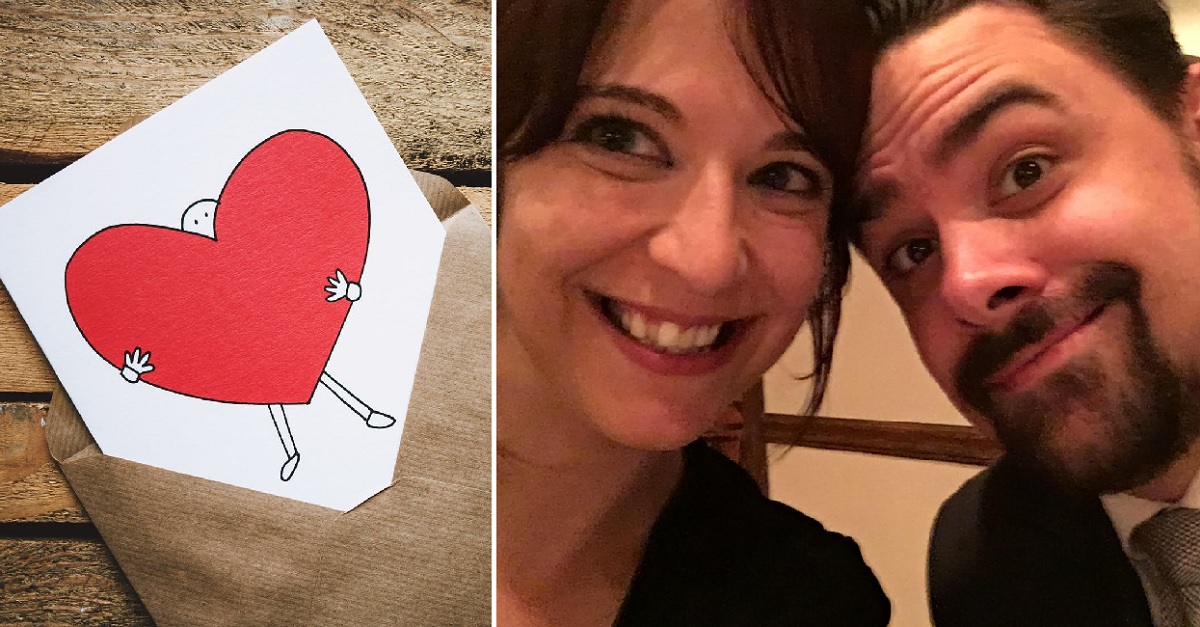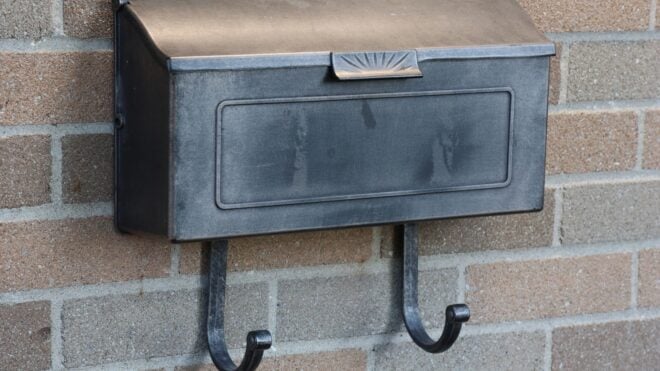
I met my husband years before we started dating. It's true — we were legitimate close friends and helped each other navigate completely different relationships for years. Sure, our other boyfriends and girlfriends at the time weren't really thrilled with our friendship, but we kept things legit. I always knew I had chemistry with my husband. But I also knew, in the back of my head, that a haphazard relationship would really ruin our friendship.
That's because we're completely different people. We don't like a lot of the same music or movies, but it even goes beyond that. I'm the type of person who needs to get tasks done immediately. I try to answer back to relevant emails immediately after I get them, while he forms a block of time during the day when online communication occurs. He needs lists to check off, while I depend on my brain. Both methods come with a bunch of pros and cons.
I have a feeling that if we happened to date right around the time we met, we would have maybe lasted a year, tops. Since back then, in our early 20s, those differences would have been too tough to navigate. These days we've been married for seven years and together for over a decade. But, it's required a lot of work. And the love languages were a huge part of that, even though a lot of people roll their eyes when they hear the phrase.

If you're unfamiliar with the love languages, here's a brief rundown. In total, there are five major ways in which people say "I love you." Those five are: Words of Affirmation, Acts of Service, Receiving Gifts, Physical Touch, and Quality Time. Even though you might state that your relationship needs all of those things to thrive, usually there's one or two that really make you feel genuinely loved. It's important to read the descriptions of each and self-diagnose where you fall.

For example, words of affirmation. Sometimes it's just nice having someone tell you that you look nice, or you're doing a good job. Outside of a romantic relationship, it's also important for mothers to hear. Moms constantly worry that they're being judged, or "doing it wrong," or "damaging their children forever," so a kudos can really make them feel special. Other people don't need that — they depend on a vacation, or quality time, to connect with someone else.

My husband and I are both pretty skeptical when it comes to things you need to buy a book for — which is how many people heard about the Love Languages. Luckily, the internet exists. We were able to google the five languages and quickly saw the areas in which disaster was born.
For one, he is big in showing love around Christmas. My husband literally keeps notes all year long regarding the perfect gifts for me. I, on the other hand, go out there and guess. Or, wait until I'm left with Amazon Prime options. I know, I know — it's not something I'm proud of.

It's really hard to change your method of gift-giving overnight. Some of us are just not-so-great at it. But until that moment, I didn't realize that the gifts that weren't winners may have been seen as a diss. As in, "Why do I care so much about what I get Karen, when she's not putting that level of effort into mine?" That's enough to make anyone feel bad when viewed from a different perspective.
With each bad gift I accidentally give, I try to let him know my thought process that led me to that exact present. He understands now that it's never personal, and that I do care. If it weren't for love languages, he may have spent some holidays feeling quietly resentful.

My love language is physical touch. All I need is a scratch on the back, or a shoulder rub, or even just cuddling up. I enjoy holding hands while out in public, without making much of a show of it. My husband is different, and not as comfortable with it. Still, he's learned why it's important to me, and that I'm not just being weird and needy. (At least, in most moments.)
So, he's made more of an effort. The love languages are there to show you that "love" is a really broad term, and loving someone takes on many forms.

It's a testament to how complicated relationships can be. From the outset, everyone just assumes that my husband and I have a wonderful relationship. And, we do. But it's required a lot of work and maintenance to get to that point. While we care about each other very much, there've been plenty of roadblocks where we fail to make the other feel appreciated. And that's because, like many things in life, we have different views.
Similarly, if I try to show him that I love him by cleaning up his side of the room, he might not "get it" if his love language isn't "Acts of Service" (which it's not.) Once we put those puzzle pieces together, we learned what we expected out of each other in terms of actions of love. It was like we finally solved a puzzle after years together.

I really do suggest for every couple to figure out their love languages, along with ways to cheer up their partner. For example, if your partner is into acts of service, clean the entire kitchen for them while they're away, without being asked. Or, donate that pile of clothes that's been sitting by the front door for a month. Take something big off of their plate.
Words of affirmation can be given at any time. Even a text with "I believe in you and I love you" may do wonders for your partner before a big meeting.

Just realize that all of the best couples didn't get there naturally. Every relationship that's worth keeping requires steady maintenance. And, trying to work on your communication should never make you feel like your marriage is in trouble. Truthfully, it's not.
Regardless of your love language, the two of you should be on the same team. Remember, life's too short to get into petty disagreements or long misunderstandings with the person you love. Try hard to understand them and see things in your shoes. Sometimes, it doesn't take much improvement to make a gigantic difference in your relationship.




